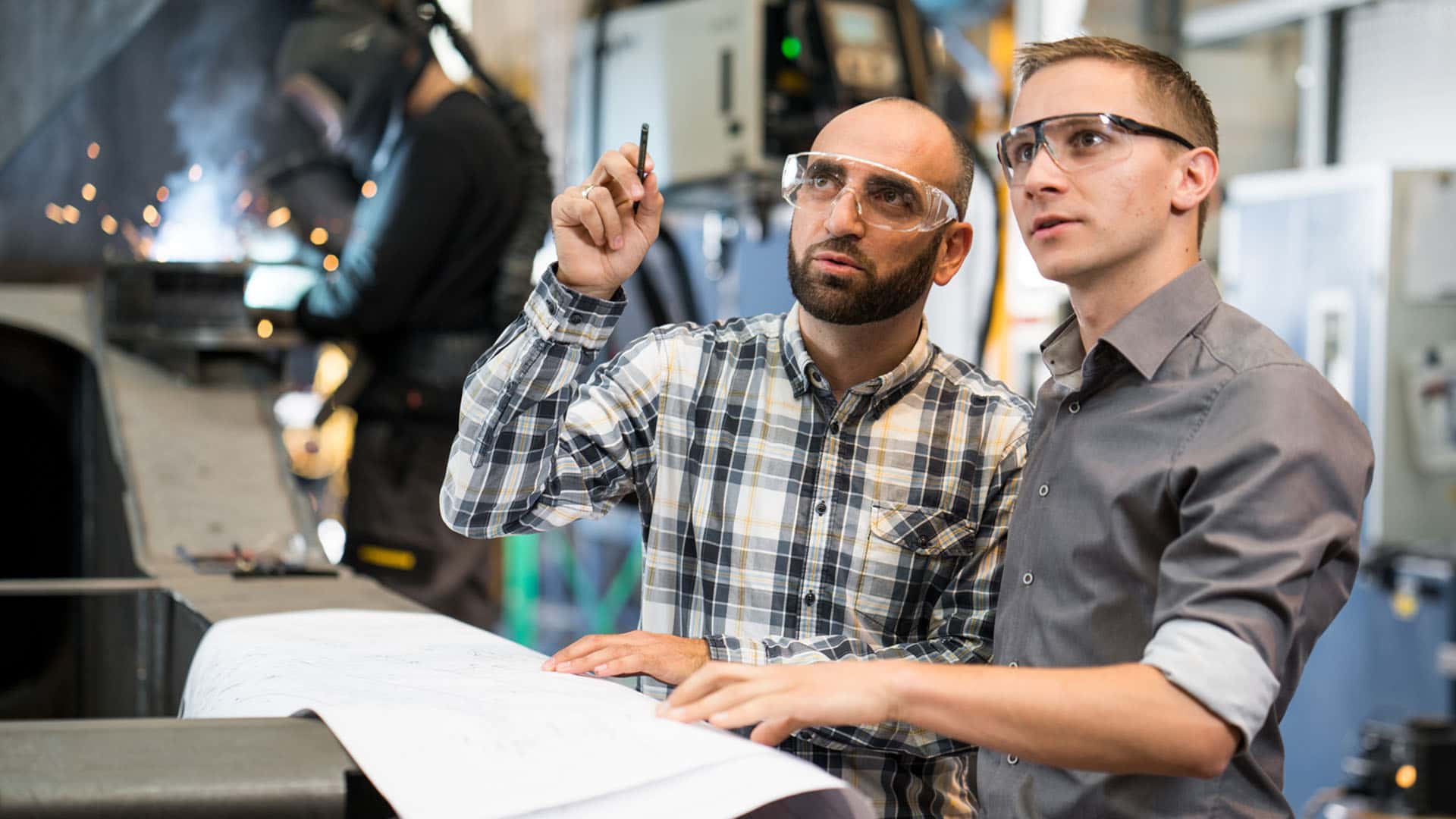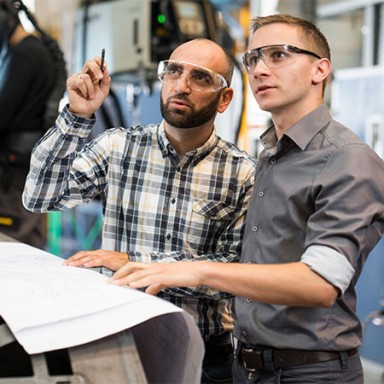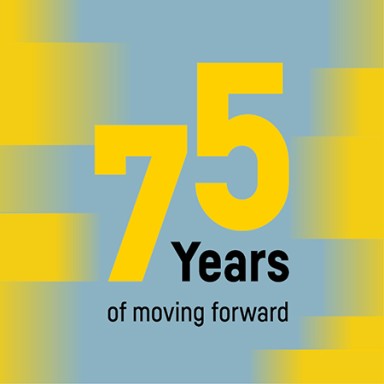 Group
GroupBrazil
Renata Azevedo
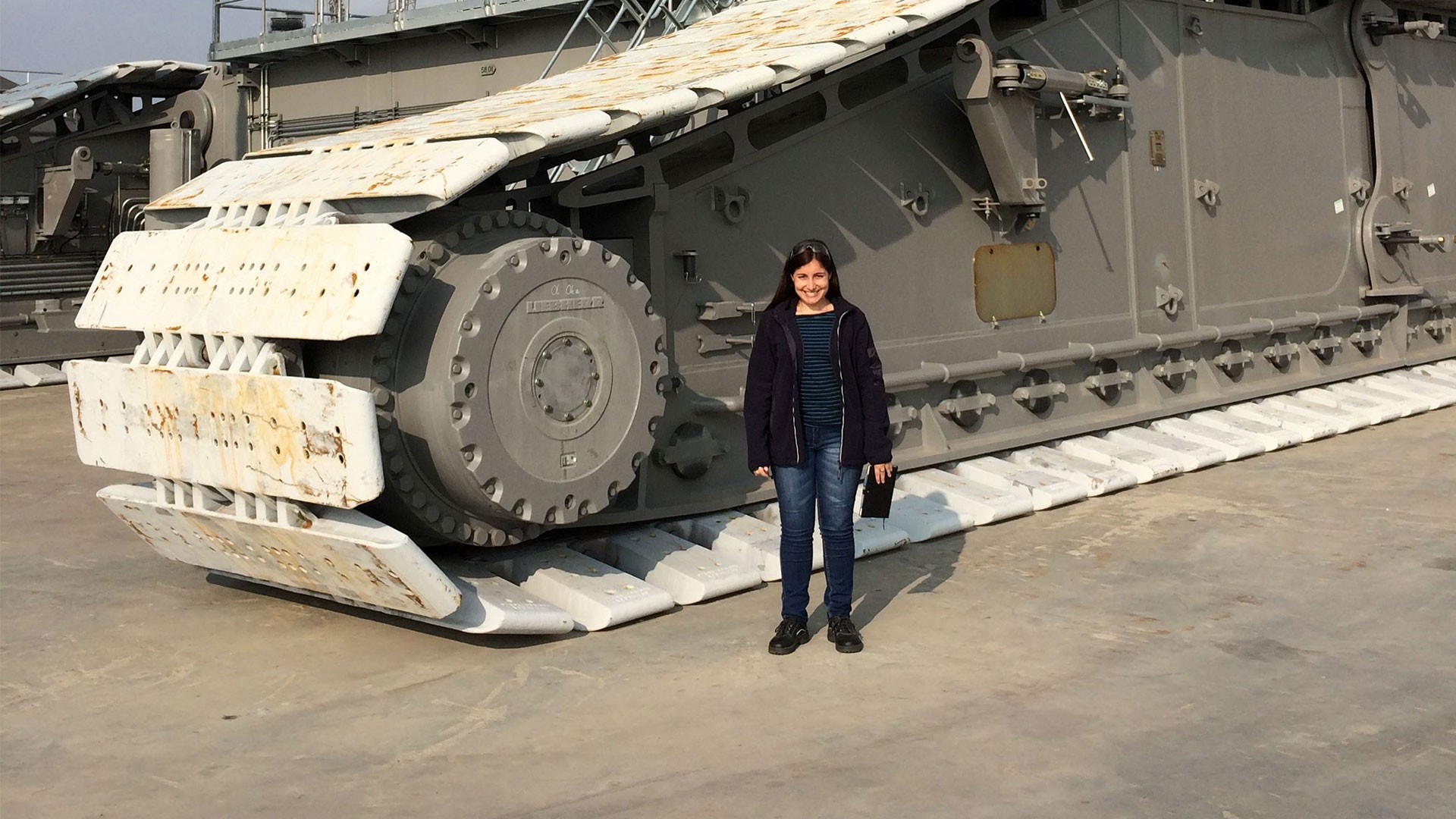
Brazil
Renata Azevedo
Brazil
Renata Azevedo
Brazil
Renata Azevedo
‘Oh, that’s Regina’s daughter!’ In June 2024, when Renata Azevedo and her mother made their rounds of the plant in Guaratinguetá in the state of São Paulo at a family day held to celebrate Liebherr-Brazil’s 50th anniversary, they received a warm welcome from everyone. Her mother had worked in materials procurement and purchasing for 37 years, so everyone there knew and valued her. ‘I grew up with Liebherr, so my own career path was pretty much already mapped out for me,’ says Renata.
She joined the company in 2013 – as an engineering trainee in steel construction for offshore cranes. ‘Not a typical female profession,’ she admits. ‘But I had always been very interested in technology and production processes. I got stuck right in and very soon I was no longer perceived as “just” Regina’s daughter, but was able to make my own name.’ Shortly before, Liebherr had posted a vacancy for a welding position in Guaratinguetá. ‘I simply applied for the job. Everything just fell into place.’ Today, Renata is a production and welding engineer for steel construction in the earthmoving machinery and mining product segments at Liebherr Brazil LTDA.

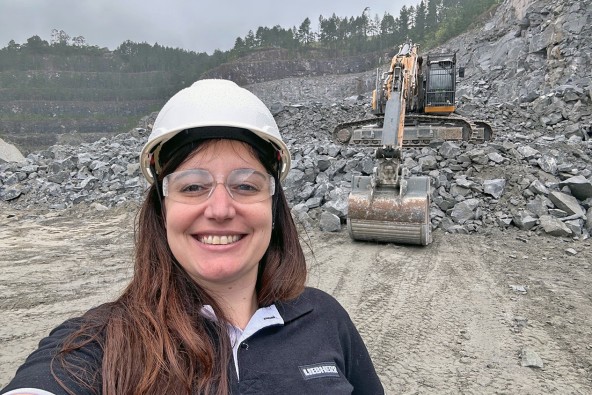
Women being passionate about welding is still somewhat of an exception in Brazil – as it probably is in other parts of the world. But she sees that as no reason not to throw herself into it. Immediately after joining the company, she began a postgraduate degree in welding technology at the renowned Mauá Technology Institute in 2014. ‘An exciting field of learning,’ she recalls. ‘It was about the latest welding specifications and qualifications in accordance with international standards – in other words, basic skills to keep pace with global competition.’ 2016 was the year: Renata received her diploma as an international welding engineer and one of two specially created positions. ‘I was probably one of the first female welding engineers in the Liebherr Group,’ she says proudly.
Asserting herself in a heavily male-dominated industrial environment and proving what she is capable of is very important to her. And not just for herself. ‘I would be delighted if I could also be a role model to encourage other young women to enter technical professions and work in this field.’
Despite her young age, she has now become a major role model. ‘As a production engineer, I have already worked on several very different Liebherr projects for the industrial sector. In my role, I am involved with investments and new technologies that are implemented in production, such as an automatic shot blasting machine, the latest CNC machining centres and the first robotic welding cell in our plant.’
She really likes the fact that her range of duties is large and varied. ‘I don’t have to spend my entire career specialising in just one area, and am always finding new, exciting opportunities for myself.’ This includes, in particular, the latest developments in robotics and automation. ‘The optimisation of production processes is hugely important, especially in times of an increasing shortage of skilled workers,’ she says. However, it is not just about the fact that a welding robot now performs highly precise and reliable repetitive tasks in wheel loader production at Liebherr, thereby increasing productivity while reducing production costs. ‘It also means we are facing a cultural shift that is changing the way we look at production and the deployment of people. I think it’s great to be able to help shape this change,’ she says. She is also thrilled to see how much support and backing her team is receiving from management and from experienced experts within the global Liebherr network. ‘Together, we are writing the next chapter,’ she asserts.
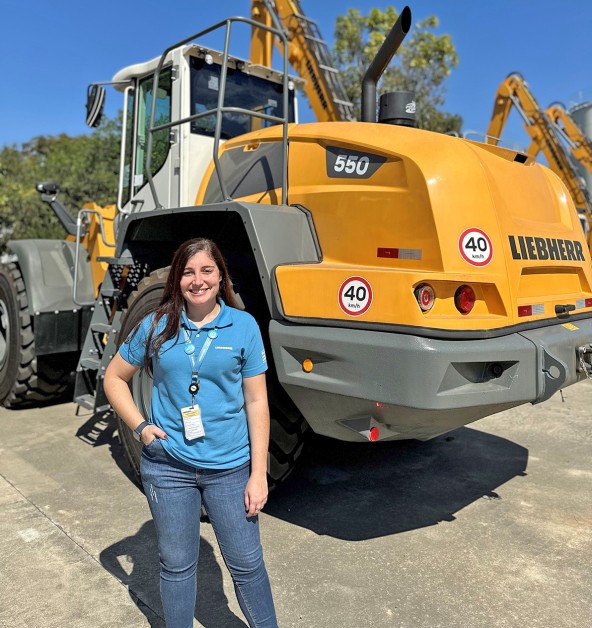
Renata shoots a short video for the 75 year Liebherr anniversary article next to an L 550 wheel loader.
To this end, she promotes interdisciplinary work across departments in her projects in order to effectively link up different skills from production and industrial engineering. ‘When it comes to process innovations, nobody knows more than those who deal with them on a daily basis. We have to make the most of this potential.’
She also sees it as her duty to share her enthusiasm for technology and progress with others and to inspire this enthusiasm in them. ‘It’s not always a walk in the park,’ she admits. ‘Employees react very differently to the integration of robots into welding operations. On the one hand, there is scepticism as to whether robots can really master the “craft” as well as is claimed. And, of course, there is the concern that they will put jobs at risk,’ explains the production engineer.
On the other hand, however, she has also noticed a great deal of interest among employees in being relieved of repetitive tasks and thus having more freedom for more demanding, less boring tasks. ‘We want to take everyone with us on this journey,’ she states. Anyone who wanted to get involved in the robotics project right from the start was able to do so. The response was consistently positive. ‘For me, building on mutual trust, preserving the tried and tested and daring to try something new together is at the heart of what has made Liebherr great ,’ explains Renata. This assessment undoubtedly rings true, after all, her own upbringing and family history is one of the many Liebherr stories that span the generations – and not just in Brazil.

